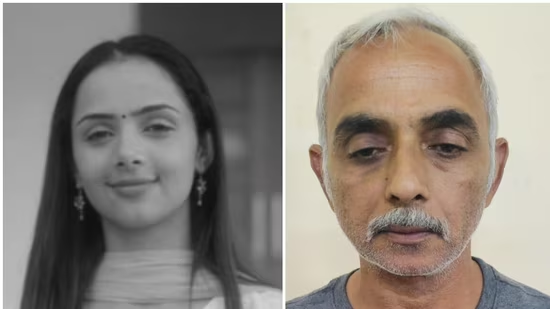
Depression
On July 10, 2025, Gurugram was shaken by the tragic death of 25‑year‑old tennis star Radhika Yadav, who was shot dead by her father, Deepak Yadav, at their Sushant Lok home. In a disturbing turn, Deepak confessed to police that his actions were driven not only by depression but by villagers’ taunts about “living off” his daughter’s income—an emotional burden he said humiliated him deeply.
1. Confession of Depression and Humiliation
In his statement to Gurugram police, Deepak revealed that he had been suffering from depression for about 15 days before the incident. The villagers’ repeated remarks—suggesting he was dependent on his daughter’s earnings—gouged at his self-worth. He told investigators, “…people used to say I live off my daughter’s earnings… it hurt my dignity”.
2. Clashes Over the Tennis Academy
Radhika, after enduring a shoulder injury, pivoted from playing to founding her own tennis academy in Gurugram. Deepak strongly disapproved, insisting she shut it down. His repeated demands were ignored, further intensifying his resentment. According to police, this academy dispute lay at the heart of his decision to kill.
3. Kitchen Tragedy on Mother’s Birthday
The murder occurred around 10:30 am—a morning when Radhika was preparing breakfast in the kitchen to celebrate her mother Manju’s birthday. Deepak used a licensed .32‑bore revolver, firing five shots; three struck his daughter in the back. Manju, unwell and resting upstairs, mistook the shots for a kitchen accident
4. Weapon and Arrest
Police swiftly responded, finding the weapon and five spent cartridges plus one live round. Radhika’s uncle Kuldeep, whose complaint triggered the FIR at Sector 56 Police Station, rushed her to Asia Maringo Hospital, but she succumbed to her injuries on arrival. Deepak was arrested after his confession .
5. Underlying Societal Pressures
Deepak’s confession sheds light on the insecurities that can grow from societal taunts. He recalled feeling downtrodden whenever he returned to his native village of Wazirabad, tabbed as a man “living off the daughter” . This intersection of fragile male ego, economic dependency, and social humiliation culminated in the tragedy.
Wider Reflection: Patriarchy, Mental Health and Family Dynamics
Radhika’s death is a grim reminder of how patriarchal expectations and mental health struggles can clash disastrously. Though regarded as a model of female ambition—founding a tennis academy, coaching children, and considering a career in sports marketing—she became the victim of her father’s bruised ego.
Experts caution that marrying traditional gender roles with public humiliation can catalyse mental health decline and violent outcomes. The availability of a licensed firearm only exacerbated the danger.
Authorities and Legal Action
Investigations continue under relevant sections of the Bharatiya Nyaya Sanhita and Arms Act. Forensics teams have documented the crime scene, including ballistic analysis and blood samples. Police are probing whether other factors, like Radhika’s social media presence—specifically Instagram reels—played any role, though the academy dispute remains central .
A Life Cut Short, A Legacy in Mourning
Radhika burst onto the tennis scene with an ITF doubles ranking of 113 and the ambition to empower others. Her sudden death on her mother’s birthday has devastated her family and the sporting community. Coach Manoj Bhardwaj referred to her as “bright and entrepreneurial,” whose death now spotlights the high cost of stigmatizing success .
Conclusion: A Tragic Convergence of Shame and Despair
The murder of Radhika Yadav stands as a stark narrative of how societal expectations, familial conflict, and mental distress can collide with deadly consequences. Deepak’s confession reveals a story not of a momentary lapse, but of a toxic accumulation of humiliation, resentment, and mental fragility.
As investigations proceed, the onus now lies on society to recognise and address fragile pride, support mental health, and regulate emotional triggers—especially in households where success disrupts traditional hierarchies. Only through such introspection can future tragedies be prevented.
Thanks For Reading